news
Emirates Offers First Ever $500,000 Multi-Risk Travel Insurance Coverage
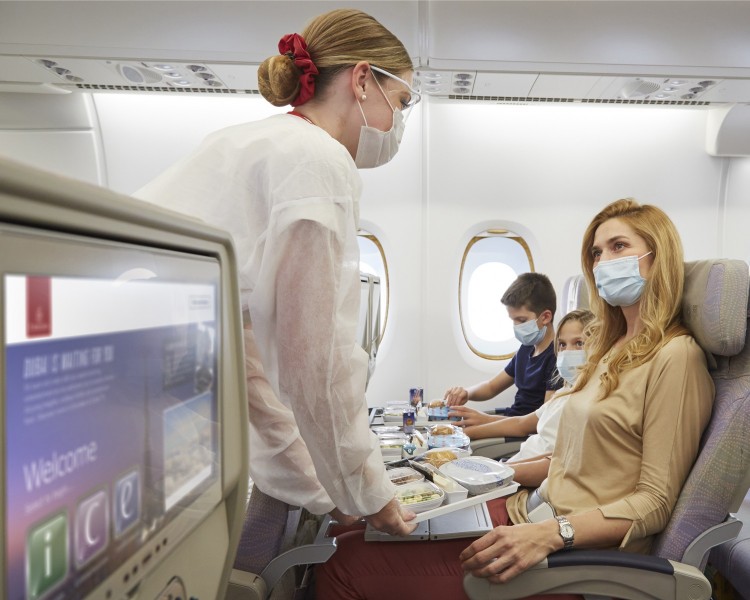
 Emirates customers can now plan their travels and fly with even greater assurance and peace of mind, with the airline’s latest industry-first initiative to provide expanded, multi-risk travel cover on top of its current COVID-19 cover.
Emirates customers can now plan their travels and fly with even greater assurance and peace of mind, with the airline’s latest industry-first initiative to provide expanded, multi-risk travel cover on top of its current COVID-19 cover.
Provided by Emirates at no additional cost to its customers, and provided by AIG Travel, this cover is the first of its kind in the airline and travel insurance industry. It is designed to provide all Emirates passengers a truly unique offer for stress-free and hassle-free travel.
This new multi-risk travel insurance and COVID-19 cover will automatically apply to all Emirates tickets purchased from 1 December, and extends to Emirates codeshare flights operated by partner airlines, as long as the ticket number starts with 176.
HH Sheikh Ahmed bin Saeed Al Maktoum, Emirates Chairman and Chief Executive said: “Emirates was the first airline to offer complimentary global COVID-19 cover for travelers back in July, and the response from our customers has been tremendously encouraging. We’ve not rested on our laurels and instead continued to look at how we can offer our customers an even better proposition. We’re very pleased to be able to now provide this new multi-risk travel insurance and COVID-19 cover, which is another industry first, to all our customers.
“We see a strong appetite for travel around the world, especially heading into the winter holidays as people seek warmer climates and family destinations like Dubai. By launching this new multi-risk travel insurance and COVID-19 cover, we aim to give our customers even more confidence in making their travel plans this winter and moving into 2021.”
Emirates customers will be covered when they fly to any destination, in any class of travel. Highlights of the coverage include:
Out-of-Country Emergency Medical Expenses & Emergency Medical Evacuation up to US$500,000, valid for COVID-19 (contracted during the trip) and other medical emergencies while traveling abroad; Trip Cancellation up to US$7,500 for non-refundable costs if the traveler or a relative (as defined in the policy) is unable to travel because they are diagnosed with COVID-19 before the scheduled trip departure date, or for other named reasons – similar to other comprehensive travel cover products.
The package also offers Trip Cancellation or Curtailment up to US$7,500 if the school year is extended due to COVID-19 beyond the departure date, and the traveler or a relative (as defined in the policy) is a full-time teacher, full-time employee, or a student at a primary or secondary school. Trip Curtailment up to US$7,500 for non-refundable trip costs and additional costs to return to their country of residence if the traveler or a relative (as defined in the policy) falls critically ill, for instance, contracts COVID-19 while traveling abroad.
Travel Abandonment up to US$7,500 if the traveler fails a COVID-19-related test or medical screening at the airport and is required to abandon the trip.
Furthermore, customers will get US$150 per day per person, for up to 14 consecutive days if, while outside of their country of residence, the traveler tests positive for COVID-19, and if they are unexpectedly placed into a mandatory quarantine outside their country of residence by a governmental body.
“We have enjoyed a long-standing relationship with Emirates and we are excited to work with them to tailor this product to meet the needs of Emirates customers worldwide,” said Jeff Rutledge, CEO, AIG Travel. “Our hope is to help alleviate some of the concerns travelers may have when planning travel during this time.”
Similar to other multi-risk travel insurance products, Emirates’ generous cover also has provisions for personal accidents during travel, winter sports cover, loss of personal belongings, and trip disruptions due to unexpected air space closure, travel recommendations or advisories. Customers do not need to register or fill in any forms before they travel, and they are not obligated to utilize this cover provided by Emirates.
Emirates’ booking policies offer customers flexibility and confidence to plan their travel. Customers who purchase an Emirates ticket for travel on or before 31 March 2021, can enjoy generous rebooking terms and options, if they must change their travel plans. Customers have options to change their travel dates or extend their ticket validity for 2 years.
Emirates has implemented a comprehensive set of measures at every step of the customer journey to ensure the safety of its customers and employees on the ground and in the air, including the distribution of complimentary hygiene kits containing masks, gloves, hand sanitizer and antibacterial wipes to all customers.
news
Nigeria and Türkiye Agree to Accelerate Trade, Energy and Defence Partnerships, Says Tinubu
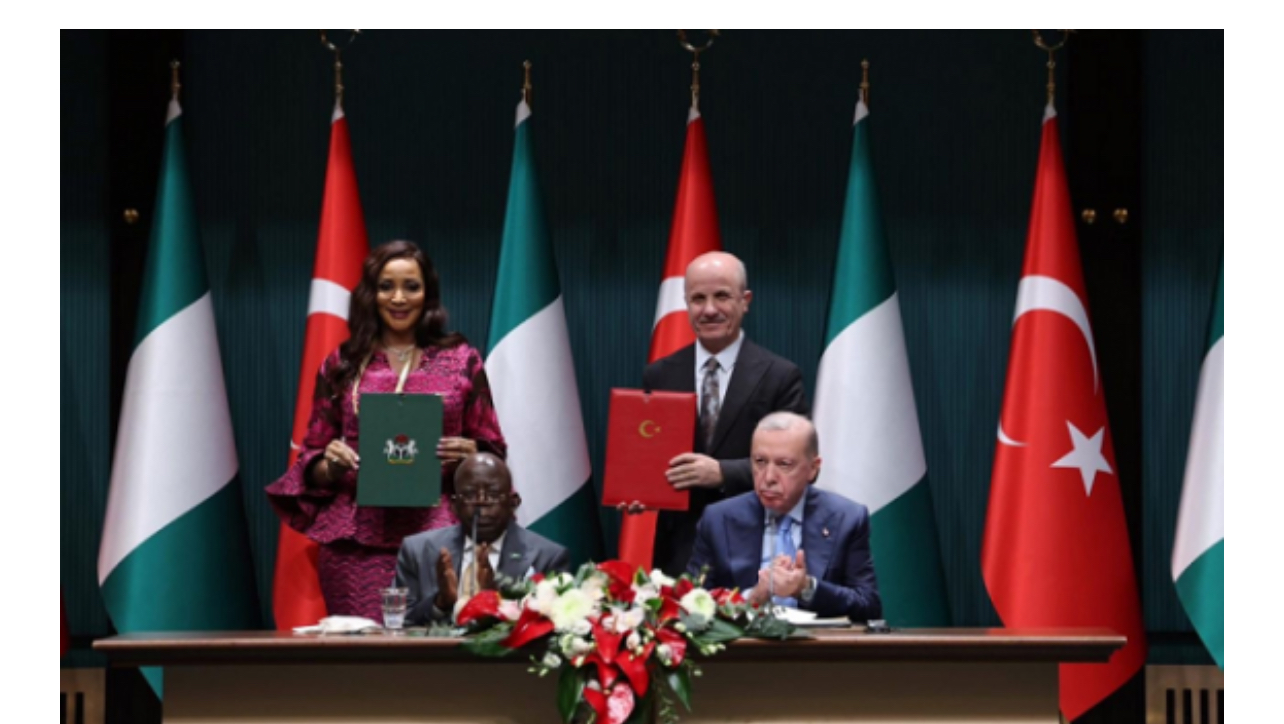
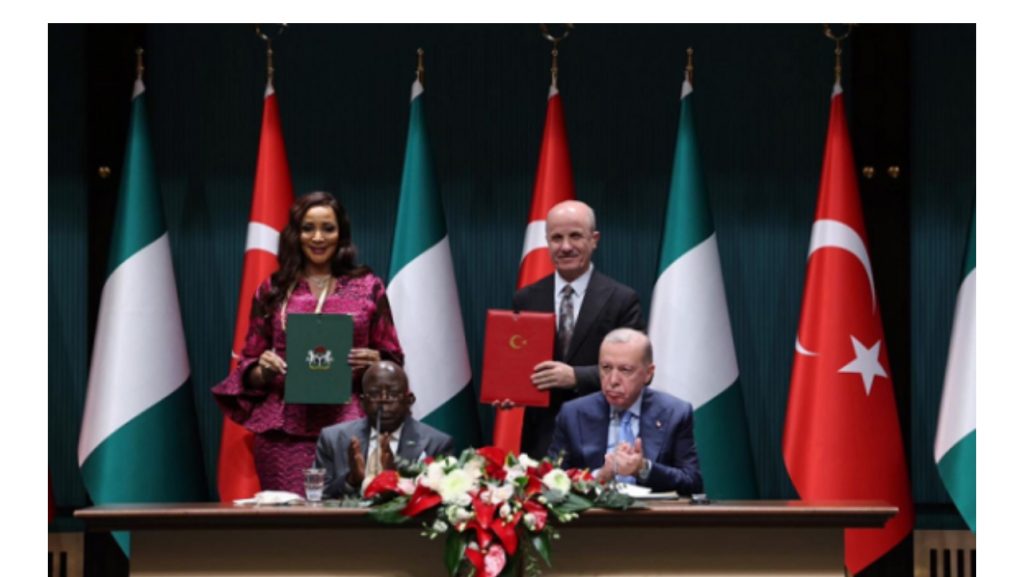 President Bola Tinubu says Nigeria and Türkiye have agreed to fast-track cooperation in trade, energy and defence to boost jobs, investment and shared prosperity.
President Bola Tinubu says Nigeria and Türkiye have agreed to fast-track cooperation in trade, energy and defence to boost jobs, investment and shared prosperity.
The President disclosed this on Tuesday via his official X handle during his ongoing State Visit to Ankara, Türkiye.
Tinubu said discussions with Turkish President Recep Tayyip Erdoğan focused on deepening bilateral relations and delivering tangible economic benefits for citizens of both countries.
“President Recep Tayyip Erdoğan and I reaffirmed our shared ambition, which speaks directly to jobs, investment and opportunity for our people,” the President said.
He said both leaders agreed on the need to expand trade volumes and remove structural barriers limiting business growth between Nigeria and Türkiye.
“We are creating a clear pathway to a five-billion-dollar trade volume between Nigeria and Türkiye,” Tinubu stated.
The President described the talks as practical and forward-looking, driven by mutual interests and shared regional and global responsibilities.
“Our conversations were practical and forward-looking: trade and investment, energy, education, defence cooperation, peace and security,” he said.
Tinubu announced the establishment of a Joint Economy and Trade Committee to drive implementation of agreements and attract fresh investments.
“The creation of a Joint Economy and Trade Committee will unlock new flows of capital,” the President noted.
He said the committee would also support industrial growth, technology transfer and stronger private sector participation.
Tinubu welcomed President Erdoğan’s acknowledgement of Nigeria’s ongoing reforms, especially in the energy and investment sectors.
“I welcome President Erdoğan’s recognition of Nigeria’s reform momentum, particularly in the energy sector,” he said.
The President said the renewed confidence reflected Nigeria’s commitment to transparency, stability and sustainable economic growth.
“We are determined to build an economy that works for everyone, including the most vulnerable,” Tinubu added.
On regional security, Tinubu reaffirmed Nigeria’s responsibility to promote peace and stability across Africa.
“Nigeria will continue to play its role in peace and stability in Africa,” the President said.
He said Türkiye’s expertise in counter-terrorism and defence cooperation would strengthen collective responses to emerging security threats.
“Türkiye’s experience and readiness to cooperate in training, intelligence sharing and counter-terrorism strengthen our resolve,” he stated.
Tinubu said nine bilateral agreements were exchanged at the end of the meetings between both leaders.
The agreements cover defence, education, media cooperation, diaspora policy, trade facilitation, social development and institutional collaboration.
“Nigeria remains open for serious partnership. Open to trade without barriers, ideas, skills and investment that create value and shared prosperity,” he said.
Tinubu reaffirmed Nigeria’s commitment to inclusive growth, peaceful coexistence and active global engagement.
“We are building an inclusive economy. We are strengthening peace. Nigeria will continue to engage the world with confidence and clarity,” Tinubu said.
news
Strengthening Cultural Leadership to Eliminate Violence Against Women and Girls
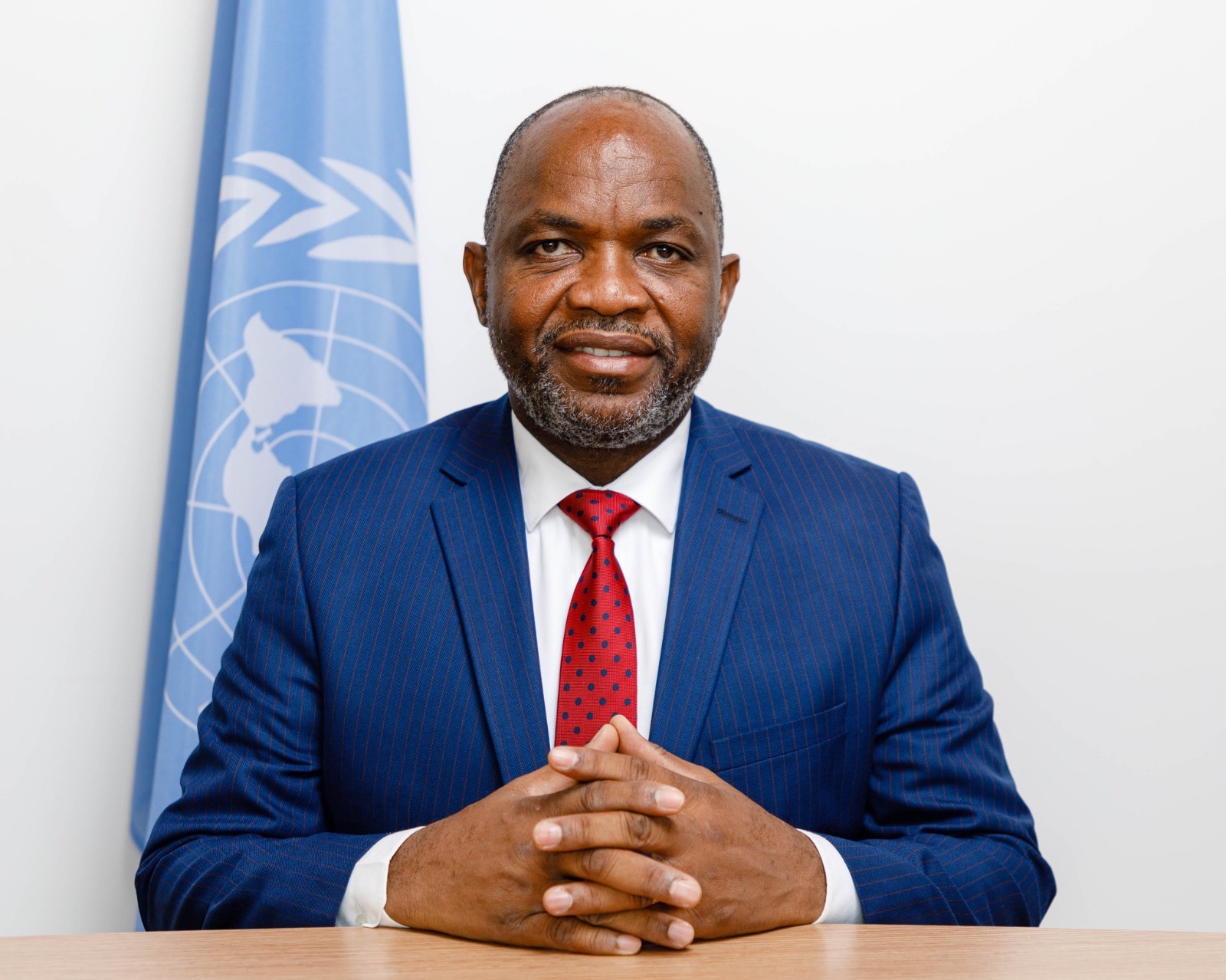
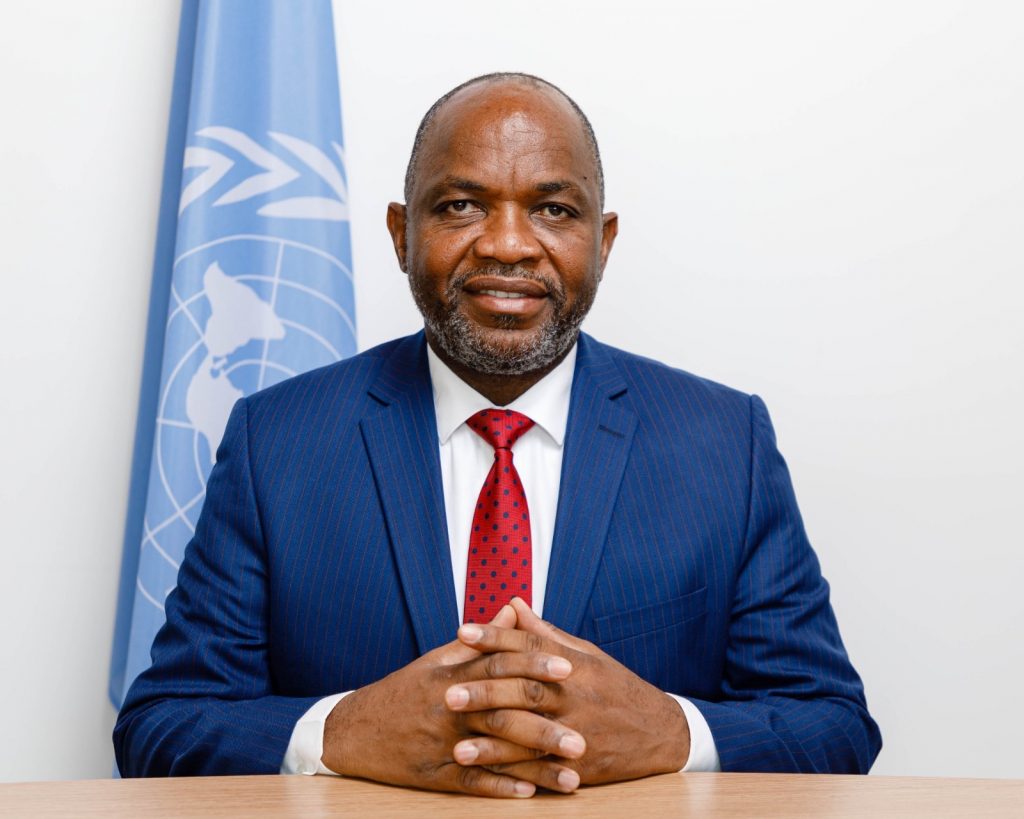
Op-Ed | By Maxime Houinato
As Africa stands at a crossroads in the fight against violence targeting women and girls, the continent’s traditional leaders hold a uniquely powerful key to unlocking lasting change. Their influence—rooted in culture, authority and community trust—positions them not just as custodians of heritage, but as essential partners in redefining norms, protecting rights and leading a continental shift toward safety, dignity and equality for every woman and girl.
In the coming week, traditional leaders from across Africa will meet in Lagos to explore how culture can advance dignity, safety, and equality. Their convening could not be timelier. Violence against women and girls remains widespread, underreported, and a major obstacle to achieving Agenda 2063 and the SDGs. Recent UN and WHO findings confirm that intimate partner and sexual violence persist at alarming levels, underscoring the need for strong, locally led prevention and accountability.
This important convening in Lagos is made possible through the valued support and partnership of the Ford Foundation, whose long-standing commitment to gender justice, human rights, and community-led solutions continues to strengthen efforts across Africa to end violence against women and girls.
Sub-Saharan Africa records some of the world’s highest rates of intimate partner violence, with studies showing that over 40% of women surveyed have experienced emotional, physical, or sexual abuse. Regional data platforms confirm that both lifetime and recent intimate partner violence remain alarmingly common. The effects also span generations: research across 37 African countries links mothers’ experiences of violence to higher risks of illness, undernutrition, and even death among children under five, highlighting IPV as a major threat to child survival and public health.
Where culture must evolve
Africa has made notable strides, yet harmful practices still put millions of girls at risk. West and Central Africa remain the global epicentre of child marriage: nearly 60 million women and girls in the region were married before 18, with Nigeria bearing the largest absolute numbers. These figures, drawn from UNICEF’s databases, remind us that while progress is possible, it is not guaranteed without sustained, community-anchored change.
There are bright spots. In Kenya, the latest Demographic and Health Survey shows FGM prevalence fell to about 15% in 2022, down from 21% in 2014, a testament to policy commitment and local norm change. Yet prevalence remains extremely high among several communities, and sustained vigilance is required to prevent medicalisation or cross-border practices.
Nigerian realities, African momentum
Nigeria mirrors the continental picture: national surveys and administrative data point to widespread physical, sexual and emotional violence, with thousands of cases reported to authorities each year, figures that almost certainly undercount the true burden. The Government’s National GBV Data Collation Tool is an important step toward standardising reporting and improving coordination; scaling it nationwide and linking it to survivor-centred services will save lives.
Encouragingly, the upcoming Conference of African Traditional Leaders in Lagos, already drawing commitments from eminent leaders, signals growing recognition that cultural authority can be mobilised to protect women and girls. UN Women’s work with traditional councils across Africa has shown that when custodians of culture publicly denounce harmful practices, backed by evidence and community dialogue, norms shift and laws gain legitimacy. It is why we helped catalyse platforms like the Council of Traditional Leaders of Africa to champion the abandonment of child marriage and FGM.
Law works best when culture leads
Africa’s legal architecture has advanced. The Maputo Protocol, our continental bill of women’s rights, has spurred reforms, and the African Commission recently moved to develop a Model Law to accelerate domestication and harmonisation across countries. These instruments matter: they provide standards, remedies and budgets. But their power is realised when interpreted through community values that affirm women’s dignity.
Evidence from the Spotlight Initiative, the EU-UN partnership with the African Union, shows that multi-sector, locally-led approaches can reduce harmful practices, strengthen services, and improve prevention. Traditional and religious leaders who champion public declarations, alternative rites of passage, and community bylaws help convert state law into lived practice.
A practical agenda for traditional leaders
I urge traditional leaders to make clear, practical commitments that have been proven to drive change: publicly and repeatedly denounce harmful practices such as child marriage, widowhood rites and FGM, backing declarations with community bylaws aligned with national law; promote survivor-centred justice in customary systems through strong referral pathways, bans on forced reconciliation, and proper case documentation; safeguard girls’ childhoods by ensuring birth and marriage registration, enforcing 18 as the minimum age of marriage, and supporting re-entry to school for married or parenting girls; encourage alternative rites of passage and positive models of masculinity that reject violence; and use their influence to push for stronger laws, adequate funding, and community engagement to address all forms of violence against women and girls.
Culture is not a relic; it is a living promise we renew with each generation. As guardians of that promise, Africa’s traditional leaders can be the champions of a continental transformation: from harmful silence to protective speech, from permissive norms to zero tolerance. If we act with urgency and unity, a life free from violence can become every African woman’s and girl’s lived reality.
Maxime Houinato is the UN Women Regional Director for West and Central Africa, providing strategic leadership across 24 countries to advance gender equality, strengthen women’s rights, and accelerate the elimination of violence against women and girls. In this role, he guides UN Women’s regional programmes on women’s economic empowerment, governance and political participation, humanitarian action, and the prevention and response to gender‑based violence.
news
Update : FG Outlaws Meter Installation Charges, Vows to Sanction Defaulters
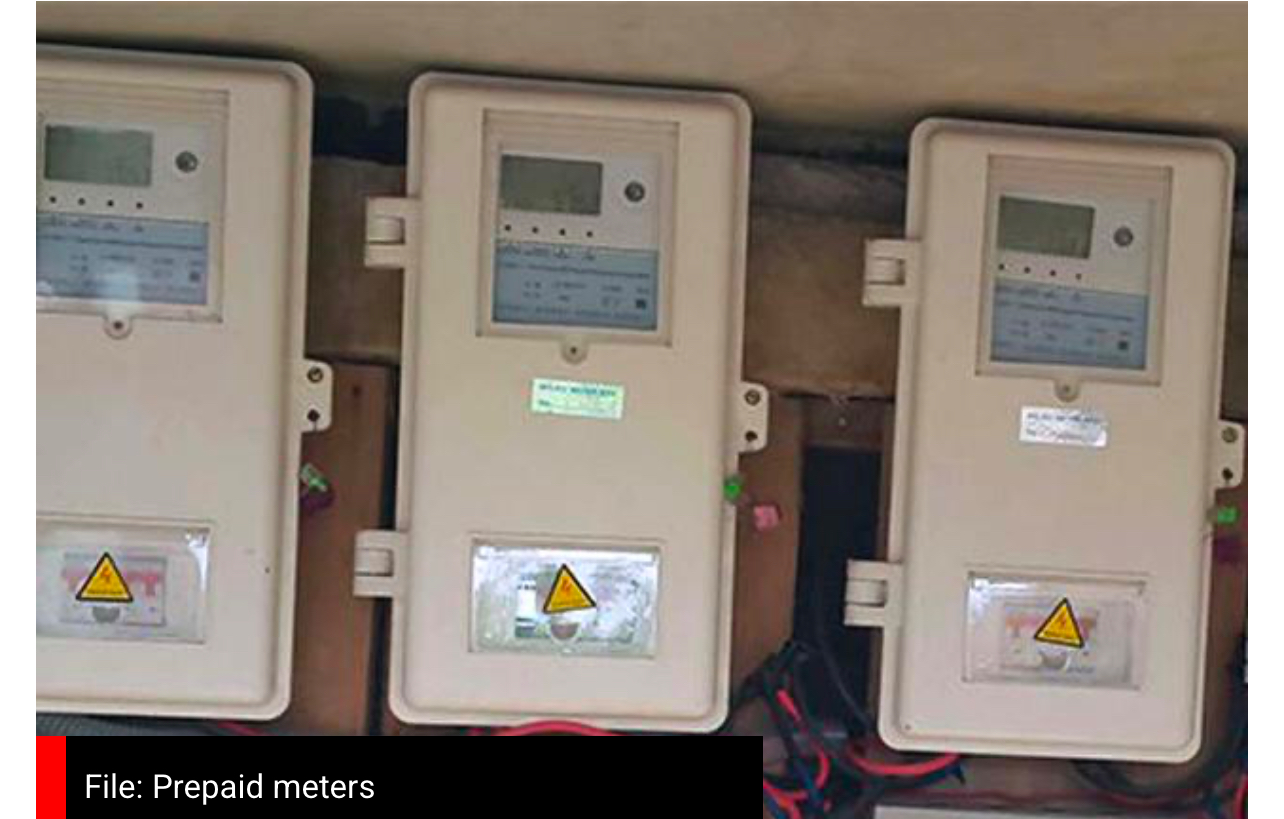
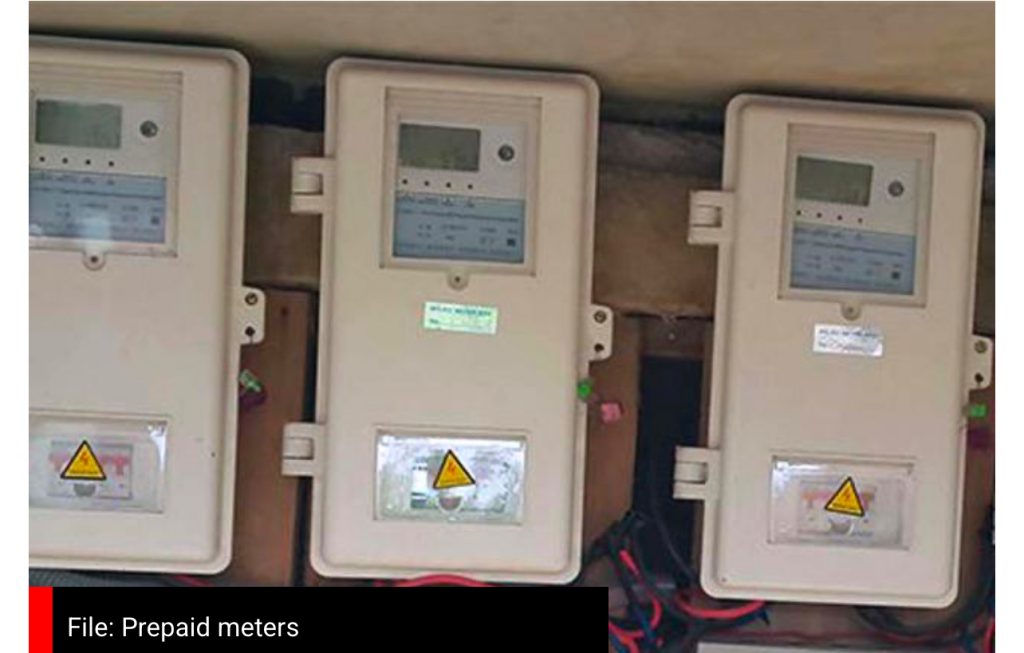
The Federal Government has banned electricity distribution companies and installers from collecting any form of payment for meters, warning that DisCo officials and installers found extorting customers will be prosecuted.
The Minister of Power, Adebayo Adelabu, issued the warning on Thursday during an on-site inspection of newly imported smart meters at APM Terminals, Apapa, Lagos.
Adelabu said the meters were procured under the World Bank–funded Distribution Sector Recovery Programme and must be installed for consumers free of charge, stressing that any demand for money would be treated as an offence.
Adelabu, who was received into the Apapa Port Command of the Nigerian Customs Service by Area Controller Emmanuel Oshoba, expressed happiness over the importation of another tranche of 500,000 smart meters under DISREP.
He said the meters would be given to all electricity customers, regardless of their band. “I want to mention that it is unprecedented that these meters are to be installed and distributed to consumers free of charge—free of charge! Nobody should collect money from any consumer. It is an illegality. It is an offence for the officials of distribution companies across Nigeria to request a dime before installation; even the indirect installers cannot ask consumers for a dime.
It has to be installed free of charge so that billings and collections will improve for the sector.
“The main objective of coming here today is to carry out a physical on-site inspection of shipments of smart meters that the Federal Government has imported under the World Bank-funded Distribution Sector Recovery Programme. This programme is supporting the Federal Government to import a total of about 3.4 million meters in two batches; the first batch is 1.43 million meters, out of which we have received close to about a million meters. Currently, almost 150,000 meters have already been installed across all distribution companies in the country.
“And what we have today is close to 500,000 meters that we just received. They are all smart meters, and I believe that the journey of completely eliminating the meter gap in the Nigerian power sector has just begun,” Adelabu said, even as he expressed dissatisfaction with the pace of metering.
Adelabu was optimistic that in a couple of years, every household, business, and institution would be fully metered so that billings and collections in the power sector would become more transparent, fair, and just. He added that it would also improve the readiness of electricity consumers to pay their bills, leading to improved liquidity in the sector.
“I’m quite excited and elated with what’s happening because it’s unprecedented. This is the first time in the history of this country that a government will be importing and locally buying this number of meters to ensure that the power sector is completely transformed. This is like walking the talk. Our target reform in the sector is not just verbal. Nigerians can see that this is real; it’s not just a promise of the tongue.
“We said it is free. We are not saying this behind closed doors. We are telling Nigerians that the distribution and installation of these meters in every location is free of charge, and it is declared an offence—an illegality—for any DisCo official or installer to request money from the beneficiaries of these meters. We will track and monitor this installation. We also await tip-offs. We have the regulatory commission (NERC), which has offices in some of these locations, and the state regulatory authorities also have offices in each state.
“We are going to open a customer complaint desk whereby, if you notice any such requests for illegal money, you report it, and the authorities will follow up. We are not leaving the installation to the DisCos alone; we’re also creating an interface between the installers and consumers to accelerate the pace of installation. We have some issues with the data and addresses of unmetered customers. We are working hand-in-hand with the DisCos to ensure clean data so that we can accelerate installation.
“We also want to maintain a register whereby unmetered customers can register their names. Once we have a list, we will validate it with the DisCos, improving the pace of installation. We are looking for confirmed cases of requests for money by any DisCo official or installer. Nigerians will know what we can do, and it will serve as a deterrent for others not to commit such an offence or illegality. That’s the plan.
“Extortion is not allowed, but there must be confirmed cases of such extortion, and the officials involved—no matter how high—will be prosecuted. It will be publicised and serve as a deterrent to others with similar intentions. We will not allow that. This is a government effort, and no activity of a DisCo or installer should frustrate government efforts to ensure that life is made easy for Nigerians and that we have a stable, reliable, and functional power sector,” he said.
Adelabu added that the Tinubu administration is resolving a decades-long problem that has affected liquidity. “But the boldness, courage, and political will of the government to go ahead with this should be commended. We will track it end-to-end to ensure that the government’s effort is well implemented and our desired objectives are achieved.
“The aggregate meter gap covers all categories of customers. We are not discriminating. We are prioritising every Nigerian, every customer, every electricity user. The issue of Band A, Band B, or Band C is temporary; it is our systematic way of ensuring this reform reaches everyone. The meters will be given to all levels of customers and not restricted to a single band. I am committing to that,” he stressed.
As journalists expressed doubts over the possibility of free meter distribution to customers, the Director-General of the Bureau of Public Enterprises, Ayo Gbeleyi, stated that the bureau coordinates the implementation of the Distribution Sector Recovery Programme on behalf of the Federal Government and serves on the boards of all 11 electricity distribution companies.
Gbeleyi said, “Regarding concerns that DisCos are delaying meter installations, you will soon see a new order or circular from the Nigerian Electricity Regulatory Commission prescribing the protocols and processes DisCos must follow to ensure unhindered access for meter installations.
“We are monitoring this. We have our dashboard, trackers, and all stakeholders’ hands on deck to ensure seamless and rapid deployment of these meters. One more thing—the meters here are manufactured to the specific requirements of each DisCo. They are inscribed on the meter, with an anti-theft protocol embedded. The configuration is for a particular DisCo, so a meter configured for Eko DisCo cannot be installed in Ibadan.”
Speaking, the Chairman of Mojec, Mojisola Abdul, said the meters supplied by the Federal Government are designed to genuinely generate more revenue for the country and supply more power.
“I’m telling you, physically, we have installed almost 150,000 meters, and they are free. Don’t give anybody money. You are not allowed. We had a meeting Wednesday with the minister and the DG of BPE about further progress on making it easy for every Nigerian. We are calling it mobile registration of free meters. If you register today, your meter will be installed within three days,” she said.
On the delay in meter installations after months of application and payments made, the minister reassured, “This is our country. It is valid that there will be apprehensions and reservations because of past experiences. Previously, there was limited meter availability, and payment was required.
“But this programme has two advantages: first, the volume is now sufficient—we have received almost 1 million meters, with another 1.55 million meters coming in the second phase. Second, the meters must be installed free of charge. The complications experienced in the past will be completely eliminated. We had a meeting on Wednesday for almost two to three hours to discuss all existing complications and foreseeable difficulties, and I assure you we already have effective solutions to all these problems.”
Adelabu also visited the National Meter Test Station in Oshodi, where meters are tested by the Nigerian Electricity Management Services Agency to ensure they meet required standards. Nigeria currently has over five million customers under estimated billing.
-

 news5 years ago
news5 years agoUPDATE: #ENDSARS: CCTV footage of Lekki shootings intact – Says Sanwo – Olu
-

 lifestyle6 years ago
lifestyle6 years agoFormer Miss World: Mixed reactions trail Agbani Darego’s looks
-

 health5 years ago
health5 years agoChairman Agege LG, Ganiyu Egunjobi Receives Covid-19 Vaccines
-

 lifestyle4 years ago
lifestyle4 years agoObateru: Celebrating a Quintessential PR Man at 60
-

 health6 years ago
health6 years agoUPDATE : Nigeria Records 790 new cases of COVID-19
-

 health6 years ago
health6 years agoBREAKING: Nigeria confirms 663 new cases of COVID-19
-

 entertainment1 year ago
entertainment1 year agoAshny Set for Valentine Special and new Album ‘ Femme Fatale’
-

 news8 months ago
news8 months agoBREAKING: Tinubu swears in new NNPCL Board


